How to Prevent a Fire in Your Home
Home fires can happen at any time and, even though we can’t control everything in our daily lives, there are certain things we can do to keep ourselves and our loved ones safer.
5-Minute Crafts has prepared this piece to help you prevent a fire in your house. However, we remind you that this article has been created for informative purposes only, and does not replace professional advice.
1. Use heating sources properly.
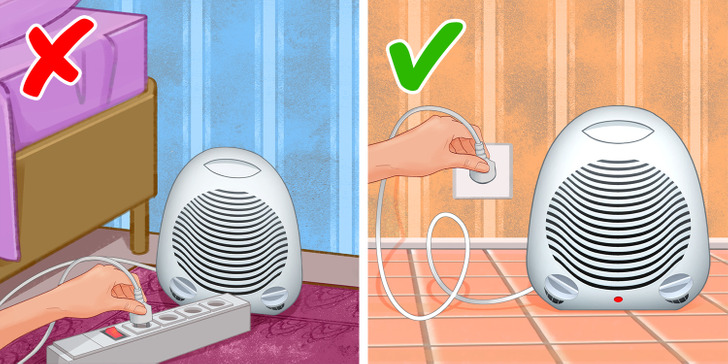
- Use a glass or metal screen to maintain fire, rolling logs, and embers in a fireplace. Never leave a fireplace unattended.
- When placing a heater in a room, keep it at least 3 feet away from things that can easily catch fire, like paper, bedding, furniture, clothing, and rugs.
- Put space heaters on a level surface that is hard and non-flammable, like a ceramic tile floor. Avoid putting heating equipment on top of rugs or carpets.
- Use space heaters only when there are people in the room and make sure you turn them off before leaving.
🚫 Do not use extension cords for heaters. Connect them directly into outlets (see Point #4). Moreover, it’s advisable to avoid running heaters at full power. Use them at half power instead, as this will prevent overloading the electrical circuit.
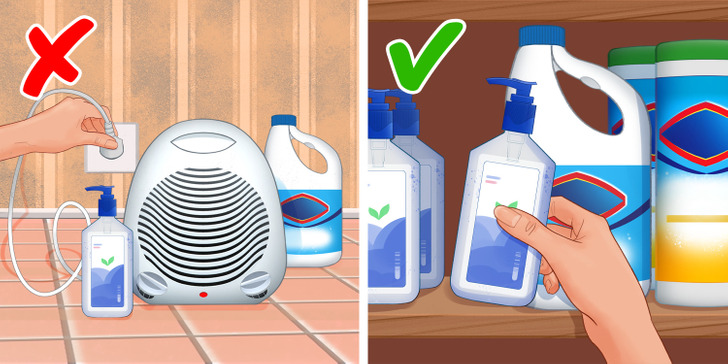
- Always remember to keep flammable products, like household cleaners and cosmetic items, away from heat sources. Make sure to store them in a cool place.
2. Prevent fires in your kitchen.
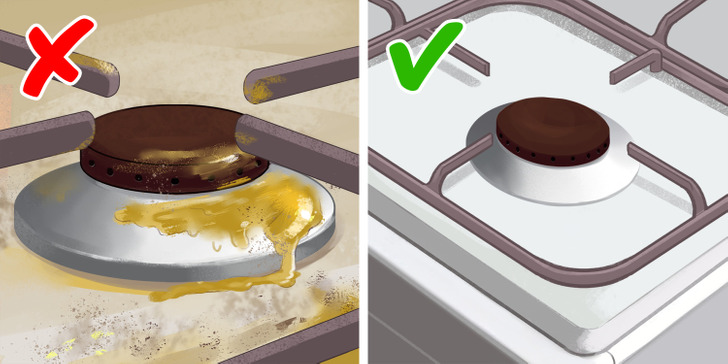
- Keep all cooking surfaces, like the stove and oven, clean to prevent food particles and grease buildup from starting a fire in your kitchen.
- Keep curtains, dish towels, and cookbooks away from the stove as they can easily catch fire.
❗Check that all your kitchen appliances are turned off before leaving your home or going to sleep.
🚫 Do not leave cooking food unattended. Never use a stove or oven as a heating device to warm up your home.
3. Replace old appliances.
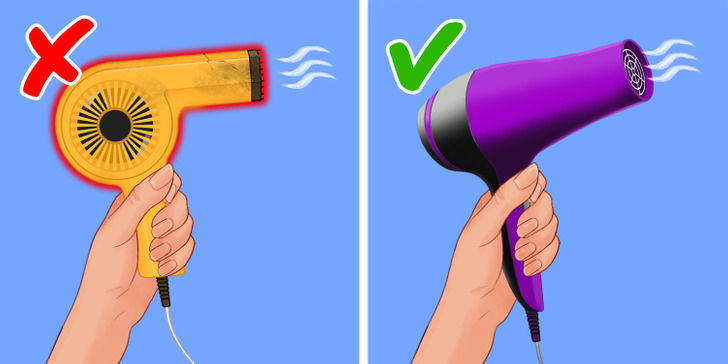
Malfunctioning appliances can start electrical fires. Even though you may have to spend some more money, it’s advisable to replace these pieces of old equipment as soon as you see the following signs:
- Light flickering anytime you use them or turn them off.
- Sparking when turning them on.
- Excessive heat coming from them.
❗ Do not ignore these signs as they represent potential fire hazards.
4. Don’t forget about cords.
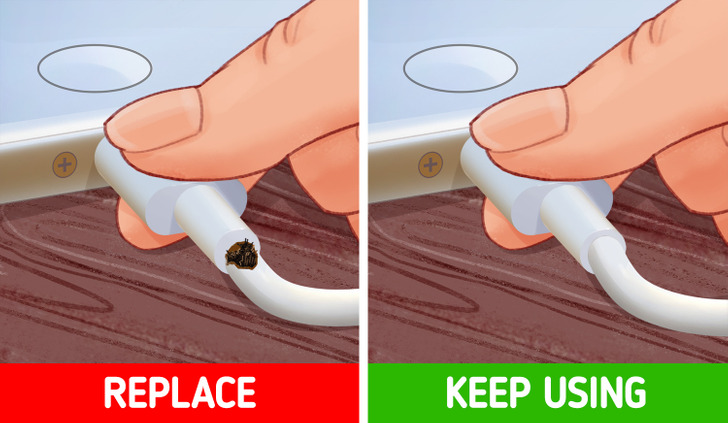
- Before plugging in any electrical appliances, check the cord for any signs of damage. Replace frayed or chewed wires as soon as you can because they represent fire hazards.
- When using extension cords, choose the right one for the desired appliance. Extension cords can overheat if they’re used with equipment that needs more energy than the cord is designed to provide. (See Point #1)
- Unplug cords when they’re not being used.
🚫 Do not place cords under rugs and avoid putting them between furniture and a wall. Never modify a wire to make it longer or to repair damaged insulation.
5. Beware of candles.
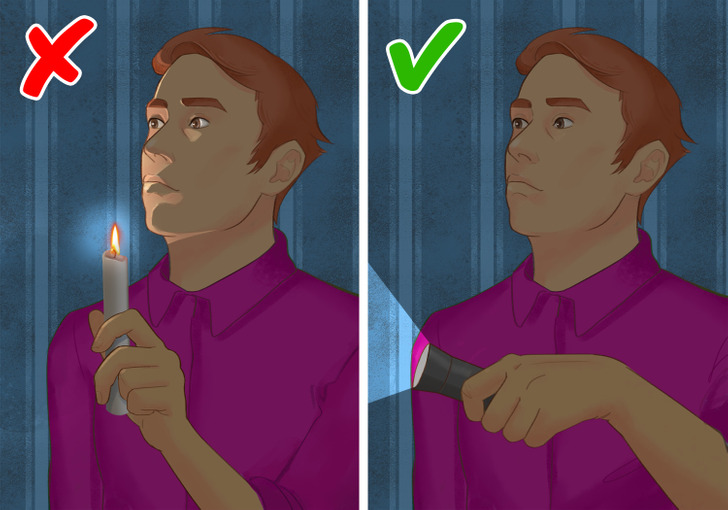
- If the power goes out, use a flashlight to see in the dark. Avoid using candles.
- Keep candles at least 12 inches away from bedding, curtains, and any other object that can easily catch fire.
❗ Blow out candles before leaving a room.
🚫 Do not place candles on uneven surfaces, like carpets, as they can easily be tipped over.
6. Check smoke alarms on a regular basis.
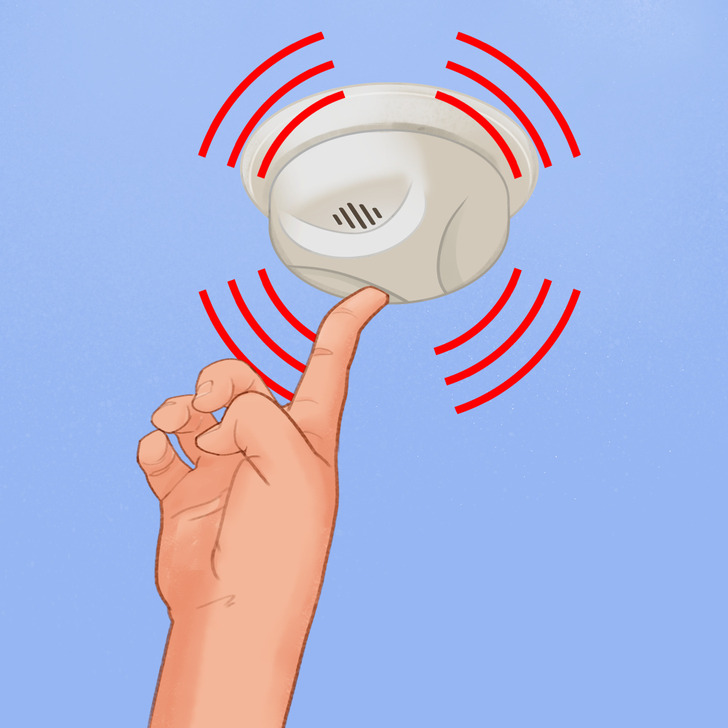
These warning devices can alert you that there is a small fire that you may still be able to put out. That’s why it’s important to make sure that your smoke detector is working properly at least once a month. To do so, follow these steps:
- Tell everyone in the house that you will be checking the alarm, especially if there are small children as they may be scared by the high-pitched sound.
- Ask a family member to stand in the furthest room away from the detector. This will let you know if the alarm can be heard everywhere.
- Press the test button on the smoke detector. It will start emitting a loud sound. If the siren is weak
or doesn’t exist, replace the batteries as soon as possible.
Check your fire detector further to see if there is any dust blocking the grates. This may prevent the alarm from working, even if you’ve recently changed the batteries.